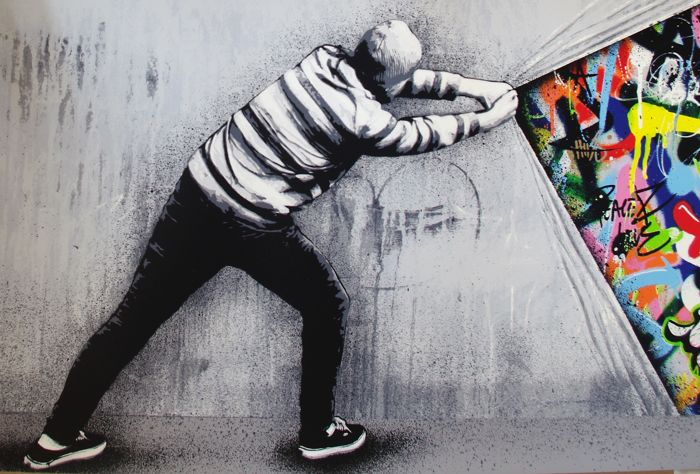|
My experience as a grant reviewer. How many times have you wondered “What does this grantor want? How do they decide?” I know, I’ve been there. I’m a professional grant writer. Recently, I had an opportunity to sit on the other side of the table and serve as a grant reviewer. We had to do a sub grant of roughly a million dollars. We accepted proposals, evaluated them, had video interviews with the finalists, selected one winner and, unfortunately, let the rest know they lost. What an experience! I have new sympathy for the challenges grantors go through. Walking a mile in their shoes showed me some of the mistakes that I've been making when I write grants. I’m going to share some of the mistakes applicants made so that you can improve your applications too: Avoid jargon Some people talked to us like we are technical experts with sentences full of jargon. They treated us like their supervisor at their University. Some of the proposals went way over our heads. Most of them, actually. It seemed like they were trying to impress us. If I have to open Wikipedia to figure out what you are trying to say, it's too much. Don't expand the scope Some proposals offered more than we asked for. We asked applicants to cover three essential points. Some proposals added in fourth and fifth points. That's not what we asked for and there was a reason why we didn't ask for it. Make sure you answer all the questions We specifically asked for a budget from the applicants. One group submitted a proposal and said their organization would have to go through a budget approval process that could take several weeks. Sorry, no, the application needs to be complete. Especially the budget. Ask questions, don’t pitch The groups that performed best in the video interview had a conversation with us; they didn’t try to “sell” us. The other applicants had a PowerPoint presentation full of text and literally read it to us. No bueno—not to mention a snoozefest. The groups who asked questions about what we wanted to accomplish stole our hearts and made it clear they understood the project. They showed us that they’d be fun to work with and not robotic. Some presenters repeated back to us what we already told them in our grant description. We already know about our product; we want to know about you! Avoid sending red flags In one presentation, the Head Applicant’s boss led the discussion. The boss also made the final submission. The optics were off. Either the Head Applicant didn’t care about the project OR wasn’t competent enough to lead the discussion. Why wasn't the Head Applicant presenting and sending us the submission? It just seemed weird. Follow the guidelines The day before the proposal was due, one team emailed me to ask for a one week extension to write their proposal. No, sorry, that’s not going to work. Everyone else worked hard to get their proposal done ahead of the deadline, so please, respect the grantor’s (and your fellow applicants’) time. Be concise Our call for proposals asked for one or two pages but left it open to add more pages. Some groups submitted 14 pages. The winning proposal was just two-and-a-half pages long. Domain expertise goes a long way. Sorry, that’s just how it is. One team’s domain expertise buoyed their application. Even though they lacked detail at times, when they said they could do it on time and on budget we were less skeptical than for groups who were doing this for the first time. It’s worth bringing some expertise to your team, at least in the form of advisors. The decision is not the decision Our decision making process went as follows: first, we scored each application against each criteria in a matrix. Based on the total score, we could rank the proposals from highest-scoring to lowest-scoring. However, the score wasn't the be-all and end-all: it just provided guidance. We then voted on the applications as a committee. Based on my conversations with other grantors, this dual quantitative and vote-by-committee approach is common. Even still, the grant committee’s decision was not final. Ultimately, our CEO, who was responsible for delivering the project to the funders, had the last word. Whatever she chose, informed by our suggestions, would have been the winner in any case. It didn’t come to that, but it could have. Ask for feedback Whenever I apply for a grant and lose, I always ask for feedback. About half the time, the grantor will actually let you know why you lost. In my experience with this sub-grant, not a single group asked for feedback on why they weren’t selected. I was shocked. Personally, I was ready to be completely candid about what they could do to improve. As weird as it may sound, grant writing has become a passion of mine. I was happy to help them improve their applications. But no one asked for feedback, so I never gave any. Until now. Their loss is your gain—because I am now sharing the feedback I wanted to give them with you. They say things happen for a reason. Maybe the reason no one asked is because I was meant to share the feedback with the world. Other resources for writing a good grant application:
USAID’s advice here on how to write a good application rings true to my experience.
0 Comments
Leave a Reply. |
AuthorKyle founded Grant&Co after running a biogas company in Kenya for 5 years. We raised a lot of grant capital there. And now we help other entrepreneurs raise capital. Archives
November 2022
Categories |


 RSS Feed
RSS Feed